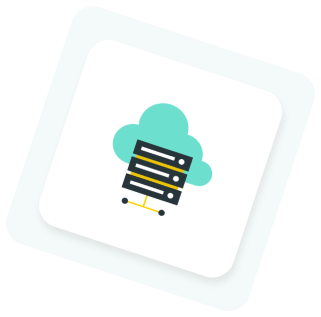The New Software Audit Playbook: How to Prepare for ISO, SOC 2, DORA & AI Act Reviews
Introduction
Software compliance audits are no longer confined to the IT department. As regulations like ISO/IEC 27001, SOC 2, DORA, and the EU AI Act take center stage, audit readiness has become a cross-functional priority for procurement, finance, legal, and security teams.
With organizations relying on hundreds of SaaS tools - each potentially processing regulated or sensitive data - ensuring continuous audit readiness is now a business-critical capability. The good news? Platforms like ─¹├╩Ą╝░╣ make it easier than ever to manage risk, automate documentation, and ace compliance audits without the fire drills.
Why Software Audits Are Now a Procurement Priority
In todayŌĆÖs digital ecosystem, every department buys softwareŌĆöbut not every team tracks it for risk. HereŌĆÖs why procurement leaders can no longer sit on the compliance sidelines:
- ¤¦Š SaaS Vendors Process Regulated Data
Think GDPR, HIPAA, PCI-DSS, or financial data. Even small apps used by marketing or HR may touch sensitive information. - ¤öŹ Audits Include Third-Party Risk Assessments
Internal audits and external regulators increasingly evaluate the entire software stack, not just core IT systems. - ¤øæ Procurement Approves Most Tools First
In many organizations, procurement or legal is the first line of defense - before IT even sees the tool. That makes procurement the gatekeeper of compliance.
¤ÆĪ If you don't know which tools are in scope for ISO or DORA, you canŌĆÖt manage the risk - or pass the audit.
Regulatory Framework Overview: What You Need to Track
HereŌĆÖs a quick breakdown of the most important frameworks affecting software compliance today:
Ō£ģ ISO/IEC 27001
Global standard for information security management systems (ISMS). Vendors are often expected to be certified for enterprise deals.
Ō£ģ SOC 2
A key framework for data security and privacy practices, especially for U.S.-based service providers. Auditors often ask for SOC 2 Type II reports.
Ō£ģ DORA (Digital Operational Resilience Act)
New EU regulation requiring financial institutions - and their software vendors - to demonstrate operational resilience, risk controls, and auditability.
Ō£ģ EU AI Act
Forthcoming legislation that classifies AI systems by risk and mandates transparency, accountability, and documentation for high-risk use cases.
Common Audit Pitfalls (and How to Avoid Them)
Many audit challenges stem from fragmented processes and disconnected documentation. Watch out for these red flags:
- ŌØī Missing or outdated vendor certifications (SOC 2, ISO, etc.)
- ŌØī No centralized contract access
- ŌØī Lack of audit trails for approvals or renewals
- ŌØī Unclassified AI-based tools with unclear risk profiles
- ŌØī No visibility into SaaS tools that handle regulated data
Even the most secure organizations can fail audits simply due to missing documentation or poor software governance.
ŌĆŹ
Building an Audit-Ready Software Stack
─¹├╩Ą╝░╣ provides the building blocks for continuous audit readiness - automating everything from vendor tracking to documentation exports.
¤Śé’ĖÅ Centralize Vendor Data
All contracts, SLAs, terms, and security certifications are stored in one searchable repository. No more hunting through inboxes or SharePoint folders.
¤ōŗ Maintain a Real-Time Audit Trail
─¹├╩Ą╝░╣ automatically logs all activity - approvals, renewals, ownership changes, compliance notes - so youŌĆÖre always audit-ready by design.
¤ÅĘ’ĖÅ Tag Software Tools by Regulatory Scope
Flag and categorize apps based on what data they touch (e.g., personal, financial, health, or AI-generated). Ensure high-risk tools receive extra scrutiny.
¤ōģ Track Certification Expiration
Monitor when vendor certifications (ISO, SOC 2, etc.) expire, and get proactive reminders to request updated documentation before audits.
¤ōä Automate Reporting
Generate audit-ready documentation and compliance overviews with a single click. Share with auditors, legal teams, or board stakeholders instantly.
ŌĆŹ
How ─¹├╩Ą╝░╣ Simplifies Software Compliance
HereŌĆÖs how ─¹├╩Ą╝░╣ supports procurement and compliance teams during audit prep and beyond:
¤öÉ Compliance Hub
Map every SaaS vendor to ISO, SOC 2, DORA, and AI Act standards - all in one dashboard.
¤ōŖ Audit Trail Timeline
View every approval, renewal, and document change over time, broken down by app or stakeholder.
¤ōü Certification Tracker
Visualize which vendors have expired or missing documentation, and follow up before it becomes a liability.
¤Æ¼ AI Risk Flags
For tools powered by or using AI, ─¹├╩Ą╝░╣ applies regulatory context based on the EU AI Act and flags potential high-risk vendors.
ŌĆŹ
Who Should Be Involved in Software Compliance?
Compliance is a team sport. Here's how different stakeholders benefit from ─¹├╩Ą╝░╣ŌĆÖs audit automation:
- Procurement: Validate vendors before purchase and document due diligence
- IT: Track and tag software touching sensitive systems or personal data
- Legal: Monitor terms, clauses, and liability risk in software contracts
- InfoSec: Ensure vendors meet security baselines like SOC 2 or ISO
- Finance: Confirm compliance before renewals or payment approval
ŌĆŹ
Related Reading & Resources
- A Guide to the EU┬ĀAI┬ĀAct
- Vendor Management: Governing Generative AI
- The Key to Unlocking IT┬ĀBudget in 2025
ŌĆŹ
Conclusion: From Audit Panic to Audit Power
Audit season doesnŌĆÖt have to mean last-minute scrambles and compliance chaos. With ─¹├╩Ą╝░╣, procurement and IT leaders can ensure that their software environment is secure, documented, and aligned with global regulatory frameworks - 365 days a year.
By centralizing vendor data, automating documentation, and tracking certification status, ─¹├╩Ą╝░╣ empowers organizations to:
- Reduce audit failure risk
- Speed up vendor onboarding
- Demonstrate due diligence
- Stay compliant with evolving laws like DORA and the AI Act
¤æē Book your demo today.


.png)














